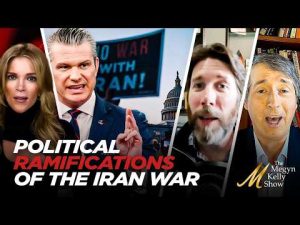In a surprising turn of events, the President of the United States recently extended an invitation to the Crown Prince of Saudi Arabia, sparking a heated debate among political commentators and concerned citizens alike. This decision raises provocative questions about past actions, present interests, and the complex nature of international relations. Was it a wise move to welcome a figure who has faced accusations related to the tragic killing of journalist Jamal Khashoggi, or is it simply strategic diplomacy playing out on a grand stage?
Some commentators are highlighting that Khashoggi, while a contributor to major publications like the Washington Post, wasn’t exactly your typical local journalist. He was a Middle Eastern figure, with his work appearing only for a brief period. The media, however, frequently exaggerates the circumstances surrounding his death, almost painting him as an American icon rather than acknowledging his global context. Critics emphasize that it’s essential to keep perspectives balanced, as it helps navigate the murky waters of international politics where actions have far-reaching consequences.
Another concerning issue raised is the connection between the President’s family business dealings in Saudi Arabia and his role as the leader of the nation. Is it appropriate for the leader of the free world to engage in business with a nation that has been linked to the 9/11 attacks? Families of the victims, understandably emotional and outraged, are left asking why their pain seems to fall on deaf ears. The very thought of the President’s family having business ties in Saudi Arabia while hosting the Crown Prince raises eyebrows and questions of potential conflict of interest.
As history teaches us, diplomacy often involves navigating tricky alliances. Many remember that 15 of the 19 hijackers in the infamous 9/11 attacks came from Saudi Arabia, making the invitee’s presence at the White House feel somewhat jarring. Yet, past relationships between nations often evolve. For instance, decades ago, enemies such as Japan and Germany have transformed into solid allies, a reminder of how time can reshape perspectives and partnerships. The Crown Prince’s visit is being portrayed not just as a nod to Saudi Arabia but as a calculated step towards stabilizing oil prices—an urgent matter during inflationary times that impacts Americans directly.
The President’s transactional approach has reignited discussions about the balance between moral outrage and practical governance. He aims to prioritize American interests by fostering an ongoing relationship with Saudi Arabia, a nation with significant oil reserves and economic potential. Could this deliberate collaboration, regardless of past dark chapters, lead to greater stability for Americans in the future? Advocates argue that welcoming the Crown Prince might be crucial for preventing another horrific incident against Americans.
Securing investments in the U.S. economy could potentially help alleviate some economic strains, and some are optimistic about the implications of a strengthened alliance. The visit is not without its controversies, but it effectively highlights America’s ongoing dance with global politics. As the dust settles from this bold move, one cannot help but wonder if this headline-worthy encounter was indeed a necessary step or a miscalculated leap into murky waters filled with historical baggage. In the grand game of diplomacy, the stakes are often higher than public sentiment, leaving us all to ponder where America’s priorities truly lie.







